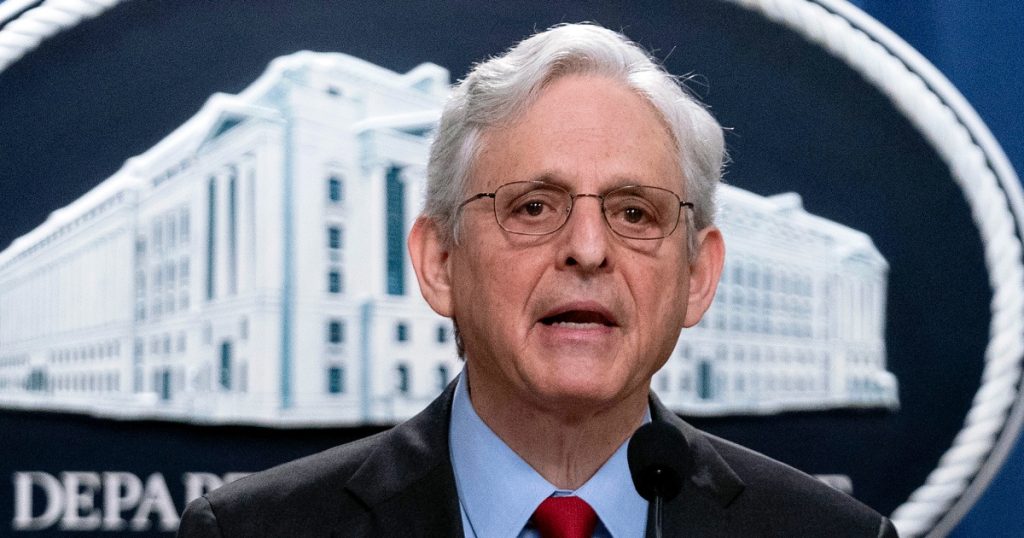Attorney General Merrick Garland has refuted claims made by former President Donald Trump that the Biden administration authorized the FBI to use deadly force against him during a search of his Mar-a-Lago property for classified documents. Trump had made these claims on the social media platform Truth Social and in a fundraising email, alleging that Joe Biden’s Department of Justice had given permission for lethal force to be used. However, Garland stated that this allegation is false and dangerous, emphasizing that the document in question cited standard policy limiting the use of force during searches.
During the FBI search of Mar-a-Lago, Trump was actually in New Jersey, not present at the Florida property. The search was related to newly unsealed court filings from 2022. Garland clarified that the Justice Department’s policy allows law enforcement officers to use force only when no other safe alternatives exist, and deadly force is only permissible when there is an imminent danger of death or serious injury to an officer or another person. He also pointed out that the same standard operations plan for searches was used during a consensual search of President Biden’s home.
The FBI, in a rare statement, reiterated that they followed standard protocols during the Mar-a-Lago search and that no additional steps had been ordered specifically for that property. This statement was in response to Trump’s claims that Biden’s DOJ had authorized the use of deadly force against him. Despite these assertions, a Trump campaign spokesperson did not immediately provide a comment on Garland’s remarks. It is worth noting that the trial involving Trump’s charges of retaining national defense information and ordering the deletion of security video at Mar-a-Lago has been indefinitely postponed.
Garland’s rejection of Trump’s claims represents a significant pushback from the Justice Department against the former president’s characterizations. This situation underscores the importance of adherence to established policies and procedures in law enforcement operations, particularly when it comes to the use of force. The Justice Department’s standard policy limits the use of force to situations where there is a reasonable belief that there is an imminent threat of death or serious injury. By clarifying this policy in response to Trump’s allegations, Garland is aiming to dispel misinformation and ensure transparency in how law enforcement conducts its operations.
The exchange between Garland and Trump highlights the ongoing political tensions and rhetoric surrounding the investigations and legal proceedings involving the former president. Trump’s claims of being targeted with lethal force by the FBI reflect a broader narrative of political persecution and bias that has been promoted by some of his supporters. Garland’s swift and unequivocal dismissal of these claims seeks to uphold the integrity of the Justice Department and maintain public trust in the rule of law. The back-and-forth between the two sides underscores the challenges of navigating legal issues in a highly polarized political environment. Ultimately, the resolution of the ongoing legal case against Trump will be crucial in determining the accountability of public officials and upholding the principles of justice and democracy.


